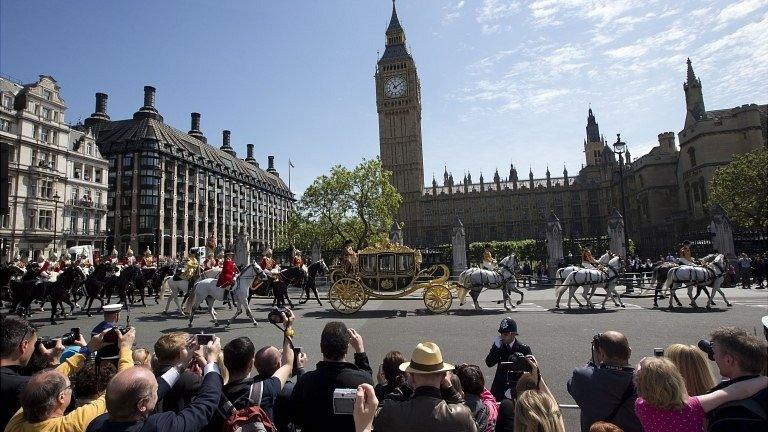Legal highs: Seven-year jail terms under 'blanket ban'
- Published
- comments
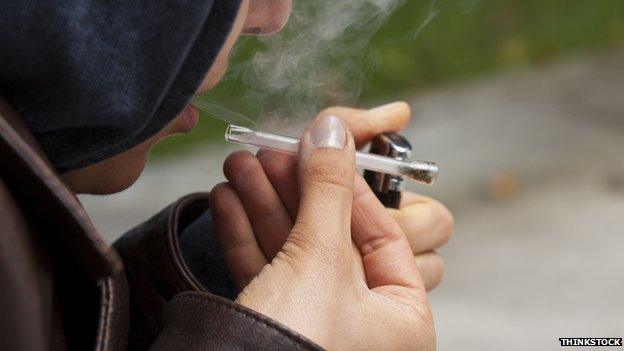
Legal highs can be smoked, snorted or swallowed
A new "blanket ban" on so-called legal highs will carry prison sentences of up to seven years, the government says.
Ministers are to publish draft laws they say are a "landmark" in prohibiting the substances' production, distribution, sale and supply.
Legal highs, officially called new psychoactive substances, have been linked to a number of deaths.
Ministers said young people who took them were "taking exceptional risks with their health".
A blanket ban on legal highs, which are often sold online or on the high street, was in the Conservative Party's election manifesto, external and featured in the Queen's Speech.
Labour also promised to ban their sale and distribution in its manifesto, external.
'Fundamental change'
The Psychoactive Substances Bill applied to "any substance intended for human consumption that is capable of producing a psychoactive effect", the government said.
Alcohol, tobacco and caffeine will be excluded, and there are also exemptions for food and medical products, while controlled drugs will continue to be regulated by existing laws.
The new restrictions will also extend to the sale of nitrous oxide - also known as laughing gas or "hippy crack" - for human use.

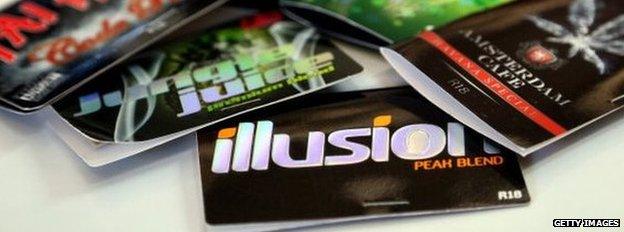
There is currently no blanket ban on the sale of legal highs, also known as new psychoactive substances
Legal highs are psychoactive drugs that contain various chemical ingredients, some of which are illegal while others are not
They produce similar effects to illegal drugs like cocaine, cannabis and ecstasy
They are sold in a variety of forms, including powder, pills, liquids, capsules, perforated tabs and smoking mixtures
The substances are often sold in "head shops" alongside drug paraphernalia

The government said the "legitimate sale" of nitrous oxide, which is also used for food processing, medicinal and industrial purposes, would not be affected.
Home Office minister Mike Penning said the measures would "fundamentally change the way we tackle new psychoactive substances".
'Cat and mouse'
They would end the "game of cat and mouse" whereby new drugs appeared on the market more quickly than the government could identify and ban them, he said.
He added: "The blanket ban will give police and other law enforcement agencies greater powers to tackle the reckless trade in psychoactive substances, instead of having to take a substance-by-substance approach."
Legal highs are not controlled under the Misuse of Drugs Act, although individual substances, such as mephedrone, have been outlawed.
The government's proposals would apply throughout the United Kingdom, and would include powers to seize and destroy legal highs and to search people, premises and vehicles.
Civil measures - including prohibition notices and prohibition orders - will also be possible.
Commander Simon Bray, of the National Police Chiefs' Council, said: "A blanket ban on new psychoactive substances will make it simpler for law enforcement to deal with those drugs which are potentially unsafe but which may not yet be controlled."
- Published26 May 2016
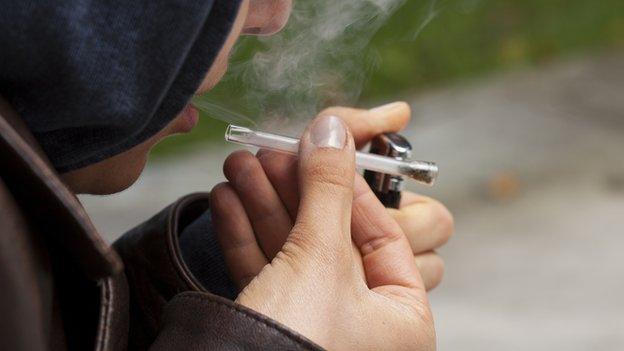
- Published23 May 2015
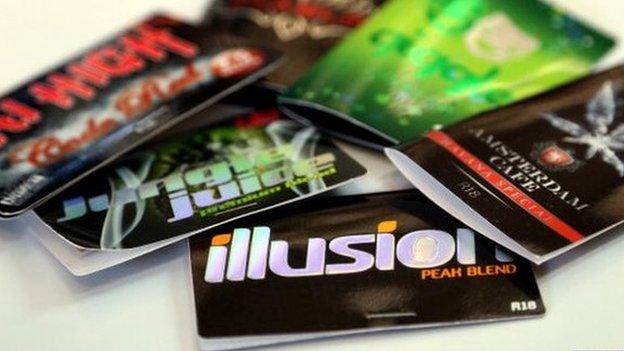
- Published27 May 2015
